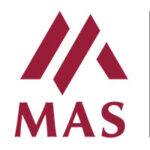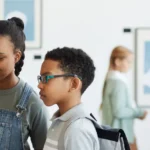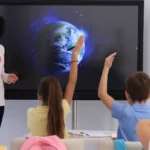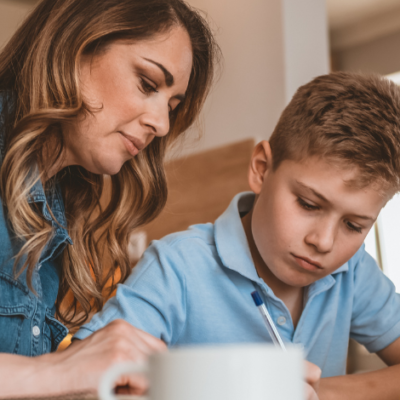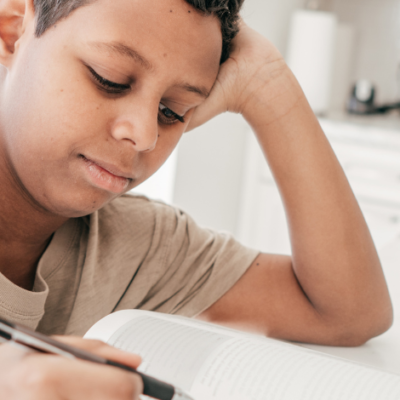We wonder at Manthena American School if it’s time for a revolution in grading and evaluation. We challenge conventional approaches in our pursuit of educational excellence among English schools in Sharjah. Join us as we explore the always-changing world of assessing students’ learning and progress.
Beyond the Numbers:
- Constraints of Grades and Assessment:
Grades frequently need to accurately reflect a student’s overall development. We understand that students are more than just a collection of numbers at our school. The creativity, critical thinking, and problem-solving abilities of a student may not be sufficiently represented by traditional grading.
- Contribution to Student Motivation:
Sometimes, the strain of grades can undermine intrinsic motivation. Instead of only focusing on getting a certain grade, our strategy aims to foster a passion for learning. For a student to succeed in the long run, curiosity and passion are essential.
Getting Ready for the Future:
1. 21st Century Skills:
- Adapting to Modern Demands:
Success in the twenty-first century includes more than just achieving in the classroom. Collaboration, communication, critical thinking, and adaptability are among the vital abilities that our curriculum focuses on developing. To succeed in a world that is changing quickly, students need these skills.
- Beyond Routine Learning:
It is no longer sufficient to merely retain information. Our teaching approach prioritizes understanding and application above rote memorization of facts. With this modification, students are more prepared to take on difficult problems and practice critical thinking in a range of real-world scenarios.
2. Technology’s Place in Evaluation:
- Utilizing the Potential of Technology:
In education, technology is a transforming force. Technology is used at Manthena American School to improve the assessment procedure. Technology makes learning more interesting and efficient, from interactive learning aids to online tests.
- Alternative Methods of Assessment:
We can investigate alternate assessment strategies thanks to technology. Beyond what can be seen in regular exams, projects, presentations, and online portfolios give a more complete picture of a student’s ability.
3. Taking Individual Learning Styles into Account:
- Differentiated Evaluations:
We use differentiated assessments because we understand that every student is different. These tests, which are catered to different learning styles, make sure that each student’s progress is assessed in a way that fits with their abilities and preferences.
- Flexible Educational Pathways:
Learning routes are flexible in our educational model. The pursuit of interests by students is encouraged, enabling them to identify and cultivate their passions. This method encourages a feeling of ownership over their education.
A Holistic Approach to Alternatives to Traditional Grading:
1. Project-Based Evaluations:
- Actual-Life Applications:
Project-based evaluations that link theory to practical implementation are given priority. These assignments allow students to use their knowledge and skills to address real-world issues, which promotes a deeper comprehension of the material.
- Learning Collaboratively:
Collaboration is a common component of project-based examinations, which encourages cooperation and communication abilities. This method helps students get ready for the collaborative aspect of the workplace, where the capacity to function well in teams is highly appreciated.
2. Portfolios as an Integrated Record:
- Displaying a Growth Journey:
We encourage students to keep portfolios that highlight their academic success, extracurricular pursuits, and introspective writing. Portfolios offer a thorough account of a student’s development, highlighting their accomplishments, successes, and areas for development.
- Non-Academic Achievements Recording:
Traditional grades could not accurately reflect a student’s extracurricular achievements. Through the use of portfolios, we can acknowledge and celebrate successes in areas like leadership, creativity, and volunteerism, giving us a more complete picture of the student.
Individualizing Education:
- Differentiated Evaluations:
Every student is different, and our assessment processes consider this variation. Individual strengths, learning preferences, and interests are taken into account in differentiated assessments. This strategy makes sure that each student’s progress is evaluated in a way that is consistent with their unique path.
- Continuous Improvement and Feedback:
Continuous feedback is valued more highly than final grades. Students can identify their areas of strength and growth through frequent feedback sessions, promoting a culture of ongoing development.
Our Goal is to Get Students Ready For Lifelong Learning:
1. Focus on the Learning Process:
- Knowing the Worth of Curiosity:
We inculcate in our children a strong love of inquiry and curiosity. By valuing the learning process itself, we foster a mindset that views obstacles as chances for exploration and discovery.
- Putting the Groundwork in Place for Intrinsic Motivation:
With our method, the focus is shifted from creating intrinsic motivation to obtaining external validation, such as grades. Students develop a self-driven commitment to lifelong learning by learning to enjoy the pursuit of knowledge.
2. Promoting Problem-Solving and Critical Thinking:
- Building Critical Thinking Capabilities:
A crucial component of lifelong learning is critical thinking. Our curriculum places a strong emphasis on the improvement of analytical abilities, enabling students to approach challenges with a critical and considerate perspective.
- Solving Problems as a Continuous Effort:
We see problem-solving as an ongoing undertaking that cuts across disciplines rather than a work restricted to certain areas. This method allows students to take on difficulties in various spheres of their personal and professional lives.
3. Citizenship Across Borders and Lifelong Learning:
- Recognizing International Perspectives:
Exposure to many viewpoints enhances lifelong learning. Our curriculum incorporates international perspectives to promote understanding of many nations, cultures, and global challenges. It takes a global perspective to succeed in today’s interconnected society.
- Develop a Sense of Responsibility:
Lifelong learners are aware of their duty to make a good difference in society. We develop in our students a feeling of civic responsibility as well as the value of applying their knowledge and abilities to positively impact the world.
Conclusion:
Finally, we at Manthena American School support a revolution in grading and assessment. In conclusion, our unique approach encourages students to pursue a future of holistic learning and sets us apart from other English schools in Sharjah. To learn more about our vision
Visit our website:https://mas-sharjah.ae/


